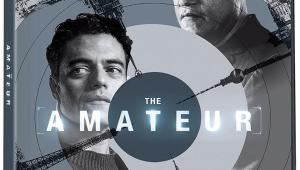The Supreme Court Wonders, Is Apple Ripping You Off?

A recent case before the Supreme Court might lead to serious ramifications in how apps are sold, as well as how digital marketplaces themselves can operate. The battle joined: Apple versus customers who buy stuff from Apple's App Store.
Consumers contend that Apple unfairly jacks up the prices in its App Store, and does so because it operates it as a monopoly. Apple receive a 30% cut of any app sales; consumers allege that this causes app developers to raise their prices to compensate, and this cost is passed along to consumers. Further, Apple does not allow consumers to buy apps from third-parties. This case before the Court does not address the potential antitrust issue; rather, the case would decide whether an antitrust suit could be brought against Apple.
Apple contends that it is acting fairly. Of course, in our legal system, precedent is everything. Apple relies on Illinois Brick Co. v. Illinois in which indirect purchasers of goods or services cannot seek antitrust damages against a manufacturer or service provider; only direct purchasers have standing to bring antitrust actions.
If Illinois Brick holds up, Apple has a strong case; Apple can claim that only app developers could sue Apple for antitrust damages. Further, Apple argues that that it is a reseller and its fee is a commission. The key question is this: when you buy an app, are you buying it directly from Apple, or directly from the app developer?
As with all Supreme Court cases, oral arguments are heard, then the justices render their verdict at some future date. Although it is far from an exact science, the kinds of questions various justices ask during oral arguments can indicate how they might vote later on. In this case, during arguments on November 26 several of the justices seemed to suggest that the charges against Apple might have merit.
Four liberal justices and three conservative justices asked questions that seemed to side with consumers. Justice Kagan mused, "I mean, I pick up my iPhone. I go to Apple's App Store. I pay Apple directly with the credit card information that I've supplied to Apple.... From my perspective, I've just engaged in a one-step transaction with Apple." Justice Alito pushed it even further. Referring to Illinois Brick he asked, "I really wonder whether, in light of what has happened since then [1977], the court's evaluation stands up." Justice Gorsuch asked, "Shouldn't we question Illinois Brick, perhaps, given the fact that so many states have done so? [Thirty-one states have asked to overturn that ruling.] Justice Kavanaugh noted that "...consumers are harmed... we have ambiguity about what Illinois Brick means here....shouldn't that ambiguity, if there is such ambiguity, be resolved by looking at the text of the statute? Any person injured?" If Illinois Brick would be overturned, Apple's case would be seriously undermined.
The ruling probably won't come until June, and even then, this is really only a preliminary step in a longer series of cases. If the Court rules against Apple in this case and consumers file an antitrust case, and Apple also loses that, Apple could be slapped with hefty penalties (antitrust violations incur triple damages), it could be forced to change how it sells apps, and the outcome might lower prices on apps. If it is found that the App Store is a monopoly, Apple might have to open sales to third parties, and let consumers buy apps directly from app developers.
This case, Apple Inc. v. Pepper, could help decide whether many digital marketplaces operate as a monopoly, and that could determine how they are run in the future.
Pedantics off.






























































